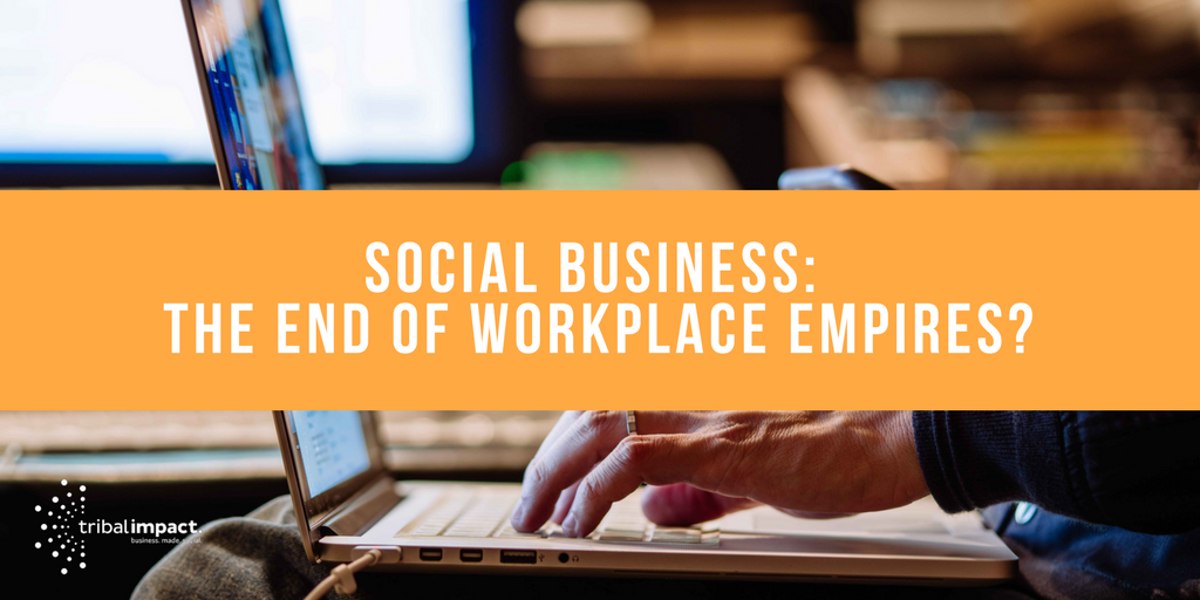
Last week our CEO, Bill McDermott, stepped into social business and published his first blog post - a humbling story about his journey from corner shop to corner office. I don't know Bill personally but I've seen him present, I've heard him talk on conference calls and I've received company wide emails. To me, his first blog felt totally authentic. This is Bill. He writes as he talks.
As one employee in a 60,000+ organisation, reading his story suddenly allowed me to connect with our company leader. It provided an opportunity to make a connection where historically, it wouldn't have been possible.
Suddenly, there is a direct channel of communication between my level and top level.
By 2020, nearly 50% of the workforce will be the millennial generation (born between 1978 and 1995) - a tech savvy, multi-tasking generation that thrive in collaborative environments. In addition, employee engagement is at an all time low with 63% of employees worldwide "not engaged" in their jobs (Source: Gallup). Couple that with the fact that only 44% of employees currently believe their leaders can lead the organisation to success (Source: Oxford Economics Study) it's possible to notice a clear message.
Leaders of the future need to engage employees, communicate effectively and collaborate otherwise they simply won't survive!
As social organisations evolve, hierarchies disappear, empires will crumble and the historically influenced employees can become empowered influencers. Effectively the chain of command disappears and those leaders that thrive on managing upwards no longer have the constraints of channeling communication to their teams. Everything is open for feedback, discussion and input.
As a consequence, those leaders that adopt a "command and control" style of leadership may actively discourage a social business approach for fear of losing management control.
Culturally this is a big deal. Those businesses adopting technologies that encourage social working across the organisation (e.g. SAP Jam, Yammer, Jive Software) also need to address social leadership. Technology alone will not achieve social business ambition. Change management and cultural transformation are essential to social business success.
So, what are the characteristics of a social leader?
- Authenticity: It's absolutely essential that leaders are authentic on social media. Hiring ghost writers and 'millennial's' who understand how to tweet will only set you up for an embarrassing #fail. Imagine arriving at a customer meeting where they compliment you on sharing an information study on LinkedIn last week and you have to ask "which one was that?". Don't even step into social unless you're committed to authenticity.
- Collaboration: Organisations that encourage collaboration will be enjoying the benefits of innovation. Those leaders that encourage their employees to collaborate, share, discuss and input to ideas will be the leaders of the future. The command and control style of leadership will only restrict innovation within a team environment.
- Communication: All good leaders are good communicators but social leaders need to master the art of social communication. Social technologies provide a platform where all employees can engage with a leader - no matter where they sit in the pecking order or how introvert or extrovert they are. Such platforms allow for direct feedback...in a very public way. Handling this needs experience, careful engagement and listening skills. Social is not a one way communication channel.
- Engagement: Social leaders should be prepared to engage with employees online. You're opening up a direct channel of communication and employees feel immensely engaged, happier and valued if they feel like they're being listened to. Acknowledging their feedback is not only respectful but you may actually find some good ideas!
- Listening: Social leaders stay ahead of their peers. They read. They consume. They share. They learn from others. They listen. By keeping their finger on the pulse they spot innovative ideas, recognize buying signals, adjust their strategies, respond to market changes, monitor their competitor moves - they listen and respond.
Have you any other social traits to add?
Feel free to leave a comment.
